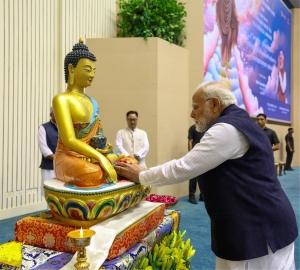India Recognizes Pali as Classical Language
October 18, 2024Indian Prime Minister Narendra Modi, addressed the International Abhidhamma Divas ceremony at New Delhi yesterday, commemorating Lord Buddha's teachings and the recent recognition of Pali as a classical language by the Government of India.
The Prime Minister expressed his happiness, noting that this year’s Abhidhamma Divas is special as Pali, the language in which Lord Buddha gave his sermons, has been recognized and accorded the status of a classical language by the Government of India this month. international Buddhist confederation (IBC) organized this ceramony.
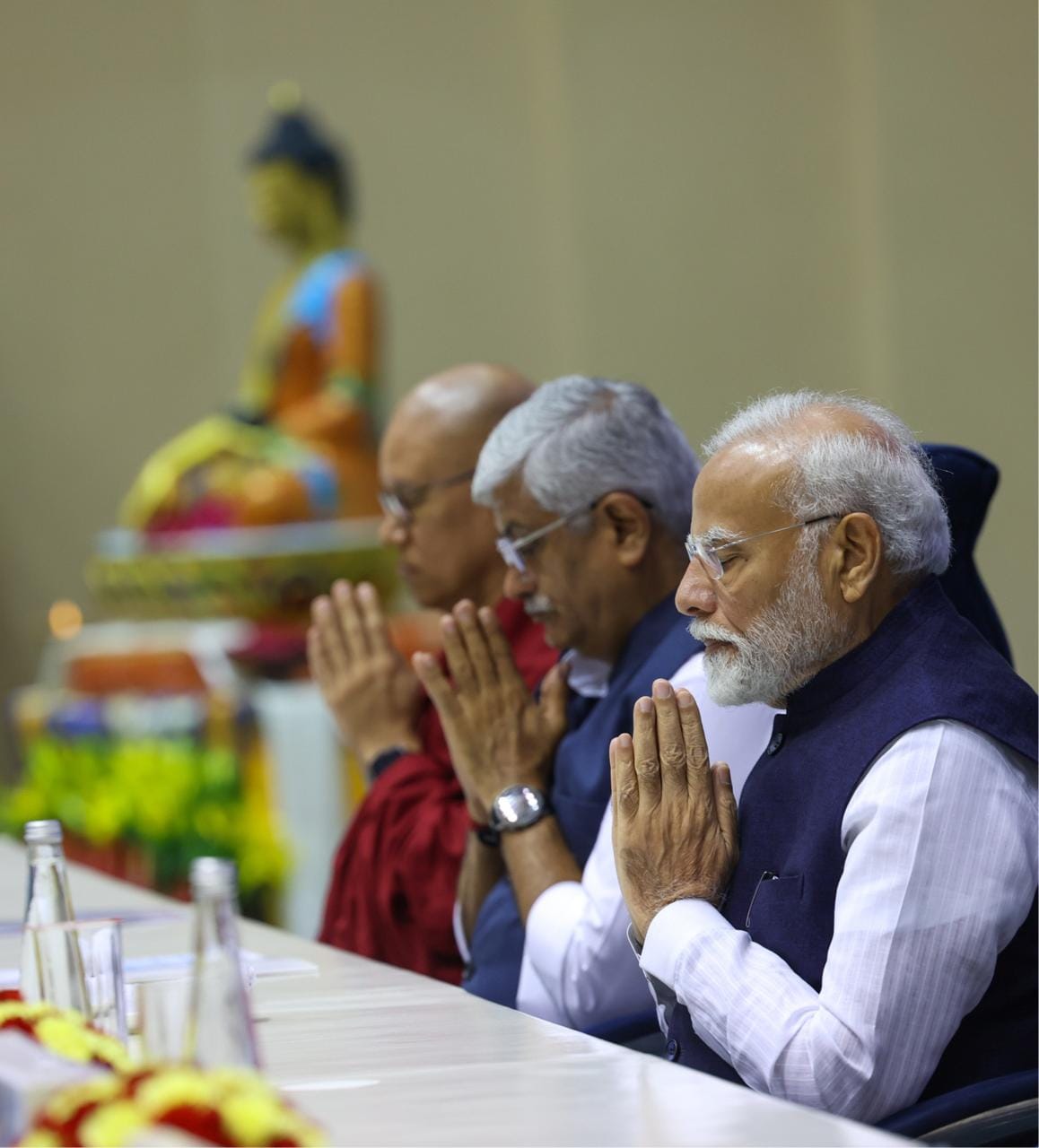
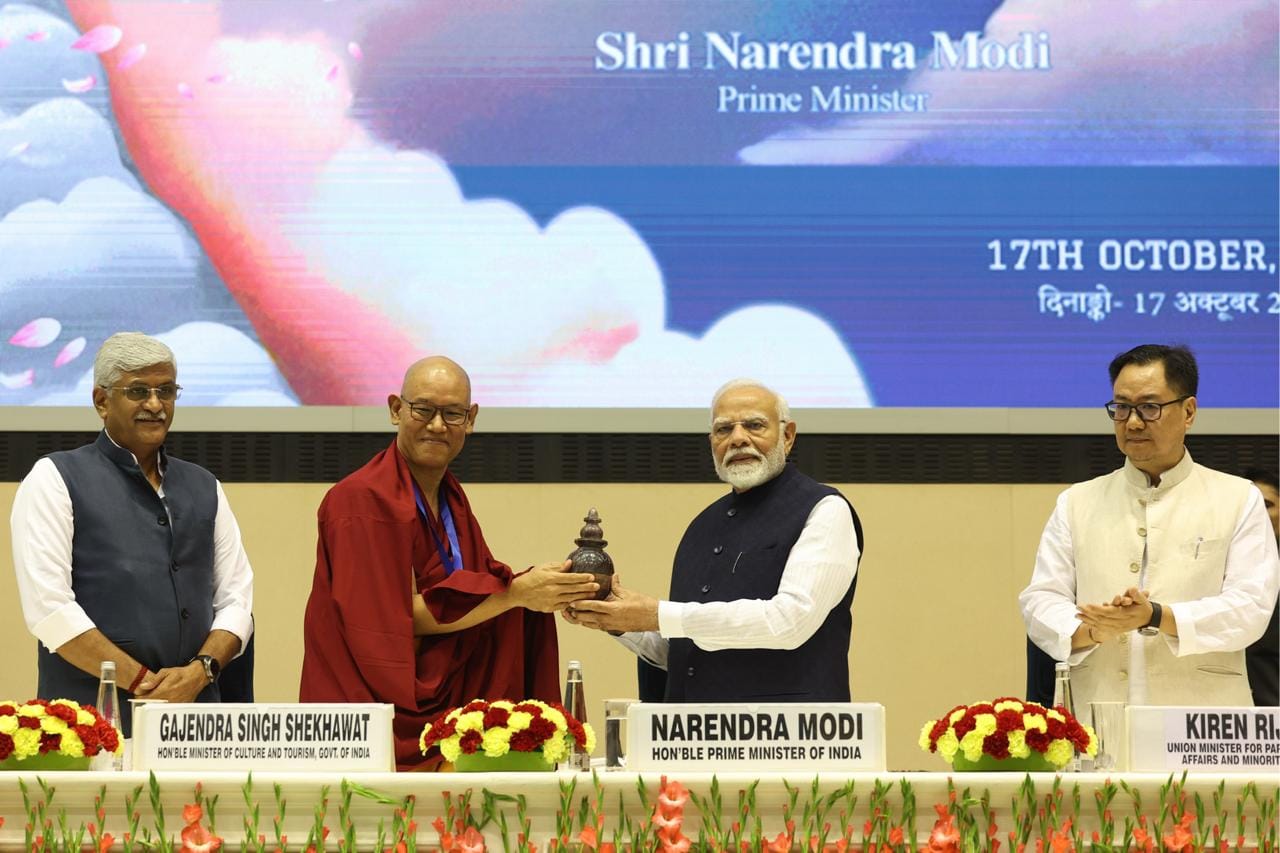
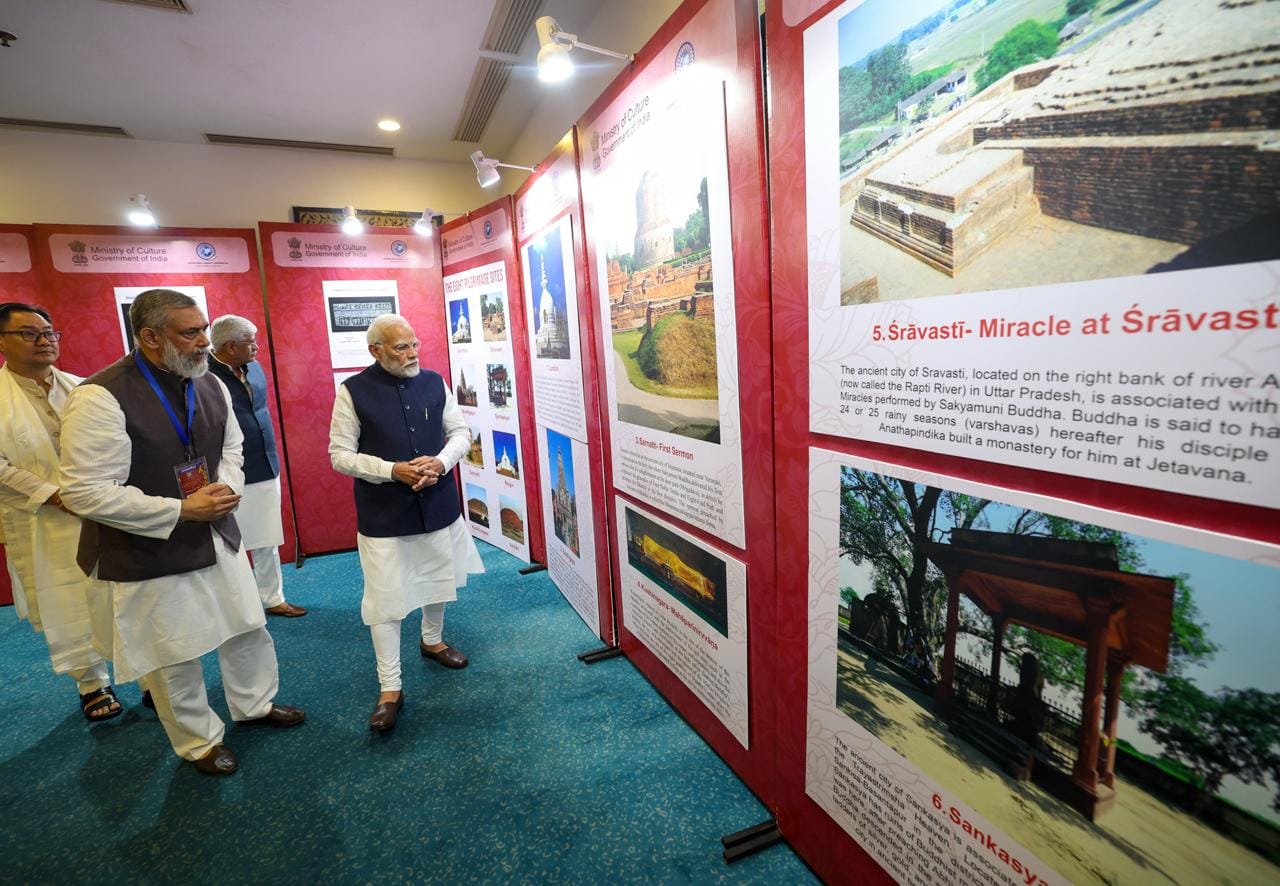
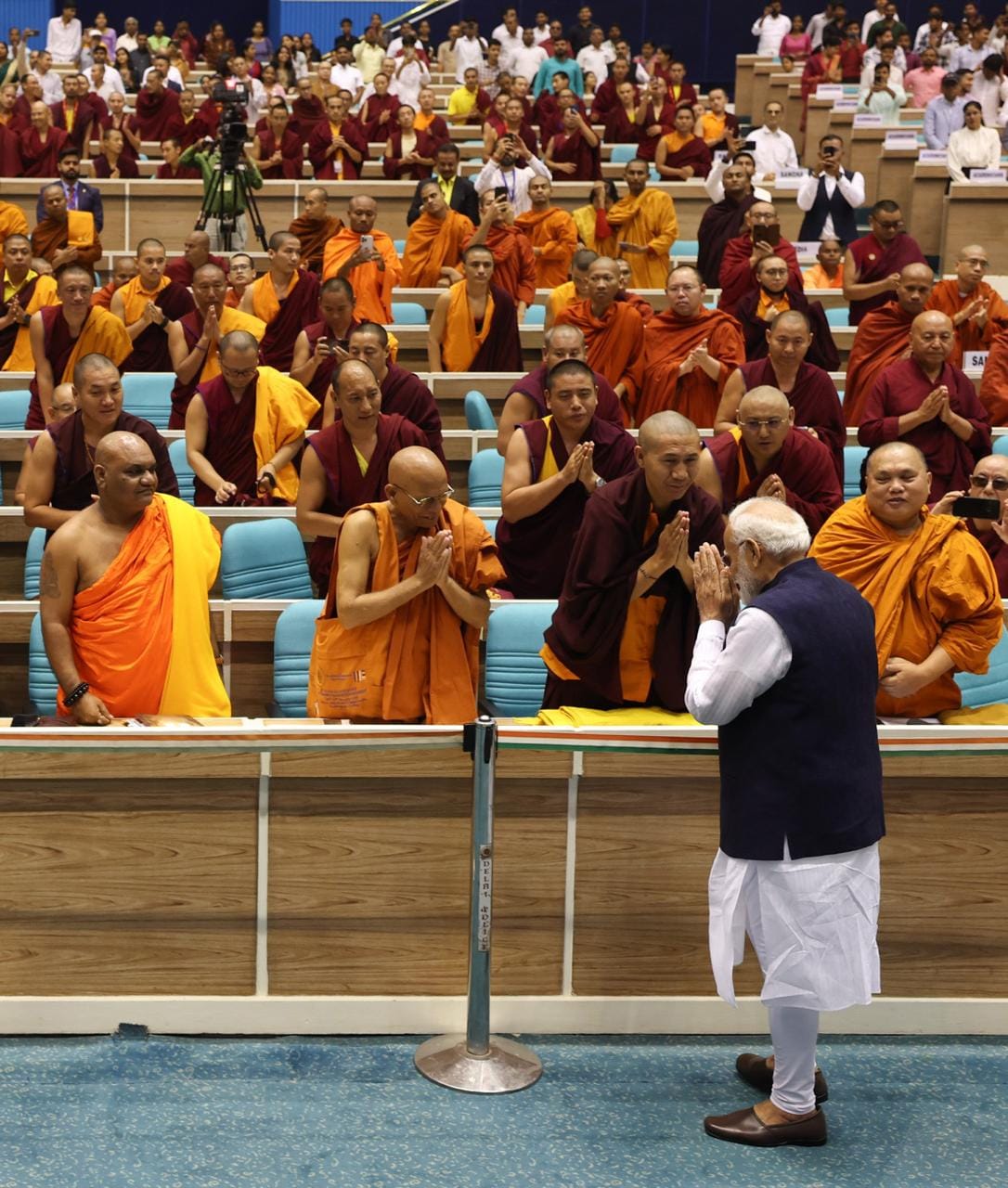
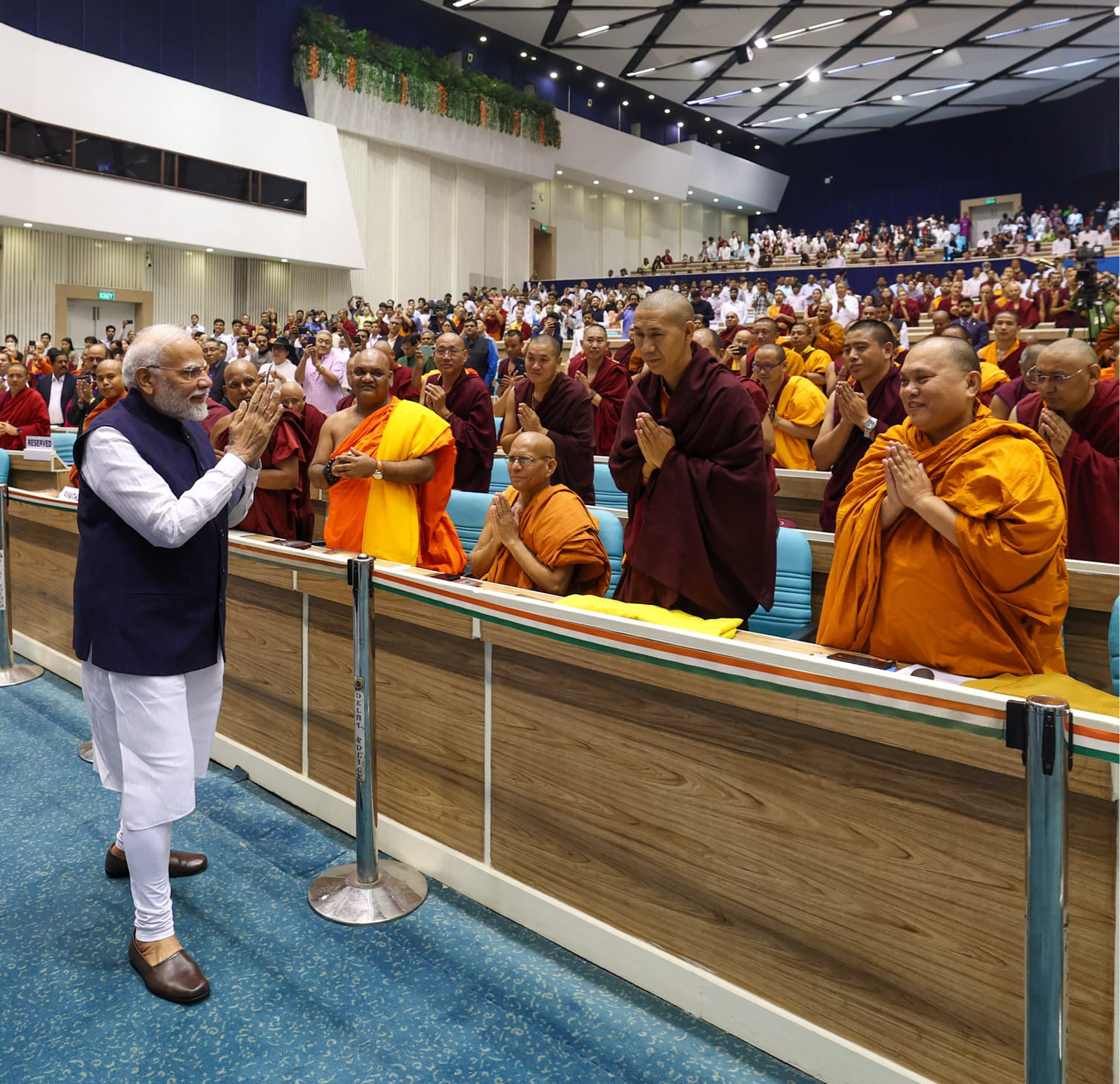
Modi, Sirisena Discuss Fishermen Issue
May 14, 2016Seeking a permanent solution to the issue of frequent arrests of Indian fishermen by the Sri Lankan Navy, India on Friday reiterated the need to build a dedicated mechanism.
“Prime Minister Modi stressed the need to develop a mechanism and find a permanent solution to the issue of fishermen straying into each other’s waters,” informed sources said, following a meeting here between Prime Minister Narendra Modi and the visiting President of Sri Lanka Maithripala Sirisena.
The Ministry of External Affairs informed on Thursday that Sri Lanka currently holds 34 Indian fishermen and 96 Indian fishing boats in custody. In comparison, the MEA spokesperson said India has 13 Sri Lankan boats in custody and no Sri Lankan fishermen.
Free trade agreement
Creation of a dedicated mechanism has been in the making for several years but has not moved ahead. Modi and Sirisena reviewed a number of bilateral issues during their talks but the free trade agreement between the two countries which has been discussed earlier was not taken up.
Sirisena is in India to attend the Vaicharik Mahakumbh in Ujjain, an inter-faith event which will take place on the sidelines of the Simhastha Kumbh. He will also visit Sanchi, where he will unveil a bust of Buddhist revivalist Anagarika Dharmapala.
A diplomat working on the inter-faith project which is indirectly supported by the government, said Mr. Sirisena’s visit is likely to provide an opportunity for India to deepen ties with Sri Lanka, especially in view of the growing Chinese influence over Colombo.
(The Hindu)
Modi Meets Sirisena In New York
September 26, 2015Prime Minister of India Narendra Modi and President Maithripala Sirisena held a bilateral meeting yesterday in the backdrop of the 70th UN General Assembly in New York.
"Continuing the momentum. After PM @RW_UNP visits India, PM @narendramodi meets with President Sirisena of Sri Lanka" India's Ministry of External Affairs Spokesman Vikas Swarup said on Twitter.
The UN General Assembly convened yesterday at UN headquarters in New York. President Sirisena will address the gathering on September 30.
Tamil Nadu Chief Minister J. Jayalalithaa on Wednesday urged Prime Minister Narendra Modi to find suitable mechanisms to resolve the long pending fishing dispute between India and Sri Lanka.
In a letter to Prime Minister Modi, Jayalalithaa called for the restoration of traditional fishing rights of Tamil fishermen and demanded concrete steps to secure the immediate release of 15 fishermen and 28 boats that are presently in Sri Lankan custody.
"The unjustified denial of the right of our fishermen to eke out their humble livelihood in their traditional waters of the Palk Bay should not be allowed to fester further. I am confident that your government will find suitable mechanisms to resolve this long pending fishing dispute between India and Sri Lanka by retrieving Katchatheevu and restoring the traditional fishing rights of our fishermen," Jayalalithaa said in the letter.
"In the meantime, the immediate issue of the arrest of the fishermen needs to be addressed. I once again, call upon the Government of India to take positive and concrete steps to secure the immediate release of the 15 fishermen and the 28 boats, who were apprehended by the Sri Lankan Navy on September 21 this year and taken to Kankesanthurai, Sri Lanka," she added.
(ANI)
Modi, Wickremesinghe Resolve To Deepen Security Ties
September 15, 2015Reflecting growing congruence in ties, India and Sri Lanka on Tuesday held extensive talks on sticky fishermen issue, ensuring justice to Tamils and ways to deepen trade and defence engagements besides resolving to intensify cooperation in combating terror and securing the maritime neighbourhood, PTI reported.
Indian Prime Minister Narendra Modi and Sri Lankan PM Ranil Wickremesinghe, after their delegation level and restricted format talks, said the countries were determined to take the relationship to the next level as the two sides signed four agreements to deepen cooperation in health care and space science.
Thanking Wickremesinghe for choosing India for his first overseas trip after becoming Prime Minister for the fourth term, Modi hoped that the country will achieve "genuine reconciliation" and development so that all people including the Tamil community can live a "life of equality, justice, peace and dignity" in a united Sri Lanka.
The Prime Minister said both the countries will intensify cooperation in combating terrorism and work together for security and stability in the maritime neighbourhood.
"We recognise our closely aligned security interests and the need to remain sensitive to each other's concerns. We both reaffirmed our commitment to deepen our defence and security cooperation," he said.
Modi, who is the first Indian prime minister to make a bilateral visit to Sri Lanka after Rajiv Gandhi's trip in 1987, said Sri Lanka is India's largest partner in defence training programme and it will continue to expand cooperation in this area.
On the fishermen issue, the Prime Minister said it was agreed that fishermen's associations on both sides should continue their efforts to find a solution.
"I conveyed to him that this should be seen as a humanitarian issue that affects livelihoods. I informed him of the steps we are taking to encourage Indian fishermen to take up deep sea fishing," he said.
The issue of comprehensive economic partnership agreement between the two countries figured in the talks and the Sri Lankan Prime Minister hoped that it will be finalised by next year.
"Your (Sri Lanka's) progress is important for our two countries, South Asia and our maritime region," Modi said.
He said the relationship between the two countries touches the hearts of ordinary Indians and Sri Lankans and that both the countries have a "huge stake" in each other's success, and in stability and development in the region.
Sri Lankan President Maithripala Sirisena had also chosen India as his first overseas destination after being elected to office in January.
(With inputs from PTI)
Our Ties With India Can Reach Newer Heights: Wickremesinghe
September 15, 2015Sri Lankan Prime Minister Ranil Wickremesinghe on Tuesday said the relationship between India and Sri Lanka can reach newer heights.
At a media briefing in New Delhi, Wickremesinghe said he held discussions with his Indian counterpart Narendra Modi over a host of issues, such as their programme of creating one million jobs over the next five years.
He said the issue of fishermen from India and Sri Lanka who often cross into each others territory was discussed and it will be concluded in a time-bound manner.
He said tourism as an area of operation was also discussed. The Sri Lankan prime minister, who is on a three-day India visit, said that by the mid of next year they will be able to draw conclusions to the issues discussed.
Our relationship "can go to newer heights", he said.
Meanwhile, Indian Prime Minister Narendra Modi thanked Wickremesinghe for the steadfast support in Indo-Lanka relations.
(With inputs from IANS)
Wickremesinghe Calls On Modi
September 15, 2015Prime Minister Ranil Wickremesinghe called upon Indian Prime Minister Narendra Modi at Hyderabad House at New Delhi a short while ago.
They were expected to discuss several important issues, including the sensitive fishermen's dispute between Tamil Nadu and Sri Lankan fishermen.
Wickremesinghe earlier met with India's Minister of External Affairs Sushma Swaraj. He is in his first official visit since becoming Prime Minister in January this year.
Bridging The Trust Deficit
September 15, 2015By Ram Madhav
Sri Lankan Prime Minister Ranil Wickremesinghe arrived in New Delhi yesterday (September 14) on a three-day bilateral visit, his first international visit after taking over as Prime Minister last month. Mr. Wickremesinghe’s United National Party (UNP) together with its allies secured a near-majority in the parliamentary election last month. Sri Lankan President Maithripala Sirisena engineered a division in the ranks of the Sri Lanka Freedom Party (SLFP), thus effectively isolating former President Mahinda Rajapaksa.
The result was the formation of a national government under the prime ministership of Mr. Wickremesinghe, with both UNP and SLFP as partners. With the two main parties coming together to form the government, the opposition space has been left to the third largest group in Parliament, the Tamil National Alliance (TNA).
The new dispensation is considered to be a strong votary of closer India-Sri Lanka relations. The President, the Prime Minister as well as the Leader of Opposition are all seen as friends by India. The last few years have seen a trust deficit between the two countries. Many in India suspected the Sri Lankan leadership of encouraging forces inimical to its interests in its vicinity. Unfortunately, the Rajapaksa government did precious little to alleviate India’s misgivings.
Challenges for the government
The new government in Sri Lanka has many challenges to face: the country’s economy is sagging; the United Nations Human Rights Council is going to take up a resolution on war crimes in Sri Lanka for discussion later this month — a very sensitive issue for both the Tamil and Sinhala population in the country. The government has to walk a tightrope on the issue.
It is in these circumstances that Mr. Wickremesinghe is visiting India. A Comprehensive Economic Partnership Agreement (CEPA) will be one of the important issues that India would like to clinch during this visit. However, there is considerable concern about, if not vocal opposition to, the agreement in the Sri Lankan business circles. India needs to correct the perception that CEPA will only benefit the Indian side and the non-tariff barriers in India will be an obstacle to Sri Lankan businessmen.
The other perception problem that India needs to address is that it doesn’t walk the talk on big-ticket projects. The Sampur coal-fired power plant is one such project which has lingered for more than a decade. The delay in its implementation has led to several new problems. Its revival is mired in land and environment-related controversies. Within the 500-acre power plant area, there are around 30 Tamil families who have been living for many years. They have to be rehabilitated elsewhere with proper compensation. In addition, more than a thousand Tamil families, who have been additionally settled just on the periphery, may also raise objections to the project coming up. Some of them have lands inside the power plant area. Environmentalists are also opposed to the power plant. They might go to court. While India may argue that it has technologies that address pollution concerns, these issues have the potential to get entangled in legal problems.
Another issue which is more than a decade old, on which India has not made much progress, is that of oil tank farms on the east coast. These British vintage storage farms give India enormous scope for oil trade in the whole of South East Asia. India should quickly operationalise these oil tank farms. It must not forget that the previous government in Colombo had offered them to the Americans. It should start negotiations for setting up a refinery in Trinco area to treat crude oil.
India’s strategic and economic priority should be to develop the east coast of Sri Lanka, especially the Trincomalee-Batticaloa belt. The Trinco belt has an enormous potential for trade, tourism, industry and commerce. It has vast stretches of virgin beaches. The Trinco port can be developed into a major port. A new airport can be developed in the area and can be connected directly with Tamil Nadu for the benefit of the Tamils in the north and east of Sri Lanka. Most importantly, by entering Trinco coast, India will be making a big presence in the trade routes of the Indian Ocean.
There are a couple of contentious issues on which India and Sri Lanka might have to be cautious. The Tamils of the north and east must be complimented for their overwhelming support to the TNA in the parliamentary elections that has helped the party secure 16 seats. TNA leader R. Sampanthan has become the Leader of the Opposition. TNA fought the elections on the principle of greater constitutional rights to Tamils for just and honourable place in the Sri Lanka constitutional mechanism. The radical elements have been rejected by the Tamil voters there. The Sri Lankan government should gratefully acknowledge this huge contribution of the TNA and move forward with specific steps to address the Tamil issue. Granting more constitutional powers to the provinces is the first important step.
The UNHRC resolution on war crimes is another important issue on which both the countries have to reach an understanding. Sri Lanka can gain from the expertise available in countries like the U.S., India, and so on, to facilitate a credible investigation by its agencies. It is important for justice to be seen by the Tamils and the international community to be delivered.
Dispute over fishing
Another contentious issue that defies any immediate answers is that of fishermen. The historic waters between India and Sri Lanka have become a battleground between the Tamil fishermen on both sides, leading to frequent clashes, incarcerations, and even deaths. A negotiated solution needs to be found on this issue. Pending the dispute over fishing, the adverse ecological impact of bottom trawling must also be addressed.
Prime Minister Narendra Modi’s visit to Colombo early this year raised the hopes in that country of a stable and reliable friendship. Lakshman Kadirgamar, former Foreign Minister of Sri Lanka and a great friend of India, had once described India-Sri Lanka relations as “irreversible excellence”. Centuries-old cultural and religious ties make the relationship irreversible. But the challenge is to make it ‘excellent’. It is too important a relationship to be left to the officials alone. Sri Lanka requires political handling.
*Ram Madhav is National General Secretary, Bharatiya Janata Party, and Director, India Foundation.
(The Hindu)



